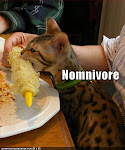
Pacey Says:
Coming up with decent mascots must be a near-impossible task if this is the best of the bunch. Can you tell which one is the Sasquatch? The "sea-bear"? The "animal guardian spirit"? An outsider might be thinking that Vancouver, Canada must have no natural or cultural icons if committee members had to invent mascots to promote their entry to the world stage.
Bigfoot is a long-running unfunny hoax that has nothing to do with welcoming anyone to Vancouver and/or promote good sportsmanship. Bigfoot is named "Quatchi" apparently after Quatchi Plateau (aka Terre de Barre) near Togo, on the continent of Africa. You may remember
 Togo as the tiny republic that experiences daily earthquakes as reported by SCTV news.
Togo as the tiny republic that experiences daily earthquakes as reported by SCTV news.There is no such thing as a "sea-bear", but it apparently it is a mythical First Nations creature. This is a good start, because First Nations contribute greatly to Canadian culture. However, I assume there must be no actual First Nations names, because this sea-bear is apparently named "Miga" after a Japanese and Korean BBQ restaurant in Mississauga, Ontario.
Even though "animal spirits" don't exist, "Sumi" has potential because it (?) wears an orca whale hat. Why this creature would be named after a type of Japanese calligraphy ink is beyond me.
All together, Vancouver came up with three creatures, yet not one of them are actually real. And these creatures are named with words that have nothing to do with the region of Vancouver, First Nations, or Canada, from what I can tell. And they're weird looking, except for the one with the orca hat.

Perhaps the best mascot the committee came up is not an official mascot, but a "sidekick" mascot. Named "Mukmuk", this creature is a rare marmot that lives on Vancouver Island and is named after a similar Squamish word for "food". Mukmuk has advantages over every other mascot in that a) it is a 'real' creature (a marmot), b) it lives in British Columbia, c) indicates the hospitality of sharing a meal, and d) and it has a name inspired by a First Nations language. Somehow, this creature did not make the cut as one of the official mascots.










